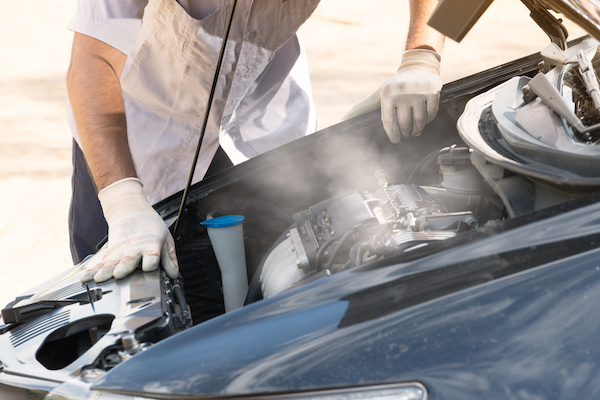
Modern vehicles have high-tech computer-controlled cooling systems with multiple heat sensors and electric fans. These systems are made to keep the engine running in any weather conditions.
However, the cooling system may fail to perform properly at times, resulting in overheating. An overheated engine may not only cause the vehicle to be grounded, but it may also cause irreversible damage if the appropriate steps are not taken.
Causes of Overheating Engine
The engine cooling system of a vehicle is more than capable of cooling the engine. However, the engine may overheat if there are issues with the engine's components or cooling system. These are among the most common reasons for engine overheating.
1. Low Coolant or No Coolant
The main function of coolant is to cool the engine. So, if the vehicle is low on coolant, the engine will overheat. Keep in mind that the vehicle has a sealed cooling system, so if you're continuously adding coolant, find out where it's going.
2. Leaking Coolant
Many places on the vehicle may leak coolant. Hoses, the water pump, the radiator, and engine components are examples. Coolant leaks may cause engine overheating.
3. Damaged Radiator
Coolants circulate in the radiator to regain its coolness. As a result, if the radiator has been damaged, the coolant may remain extremely heated. A radiator may malfunction in a number of ways. For example, the radiator fan may have failed, or the radiator itself could have been damaged.
4. Thermostat malfunction
The thermostat regulates coolant flow into the engine. If the thermostat valve doesn't work, the engine may not receive enough coolant, causing overheating. If the engine temperature light flashes often, check the thermostat.
5. Broken Water Pump
Water pump circulates coolant so it may absorb engine heat. A defective water pump disrupts the flow of radiator coolant, causing overheating. A common problem with a water pump is that the impeller has worn out or that the connection between the impeller and shaft is loose.
6. Leaking Head Gasket
The head gasket's main function is to seal the engine block and prevent coolant and oil from mixing. A head gasket leak might let cylinder gas into the cooling system. This gas raises cooling system pressure, which may force coolant out. If the coolant runs out, the engine might overheat.
7. Cooling System Trapped Air
A faulty head gasket may cause air bubbles to develop in the cooling system, reducing the efficiency of the cooling system. Incomplete radiator fill-ups and poor coolant flushes may also trap air bubbles. Low levels of coolant in the radiator might cause the water to evaporate and form air bubbles.
Overheating Engine Signs
Overheating may cause irreversible engine damage. If the vehicle overheats, it should be examined immediately. Some warning signs of an overheated engine include:
- Increased dashboard engine temperature gauge.
- White smoke or water vapor emanating from the engine compartment.
- The engine emits a stench that is either burned or unpleasant.
Tips for preventing your vehicle from overheating
Remembering these few basic driving tips may prevent irreparable engine damage in the future.
- Check the coolant level in your car on a regular basis.
- In your trunk, keep an additional bottle of fresh antifreeze and a gallon of water.
- While driving, keep an eye on your car's temperature.
- On particularly hot days, don't overdo your car's air conditioner.
- At the first sign that the engine is getting too hot, turn on the heat to help cool it down.
- Keep up with coolant service flushes by consulting your vehicle's owner's handbook.
Bottom Line
The most essential thing to remember is that an overheated engine may cause irreversible damage to your vehicle, so even after you've cooled it down and gotten back on the road, it's a good idea to get it checked out by the mechanic. If you need engine repair, we invite you to bring your vehicle to D. Wells Automotive Service today!